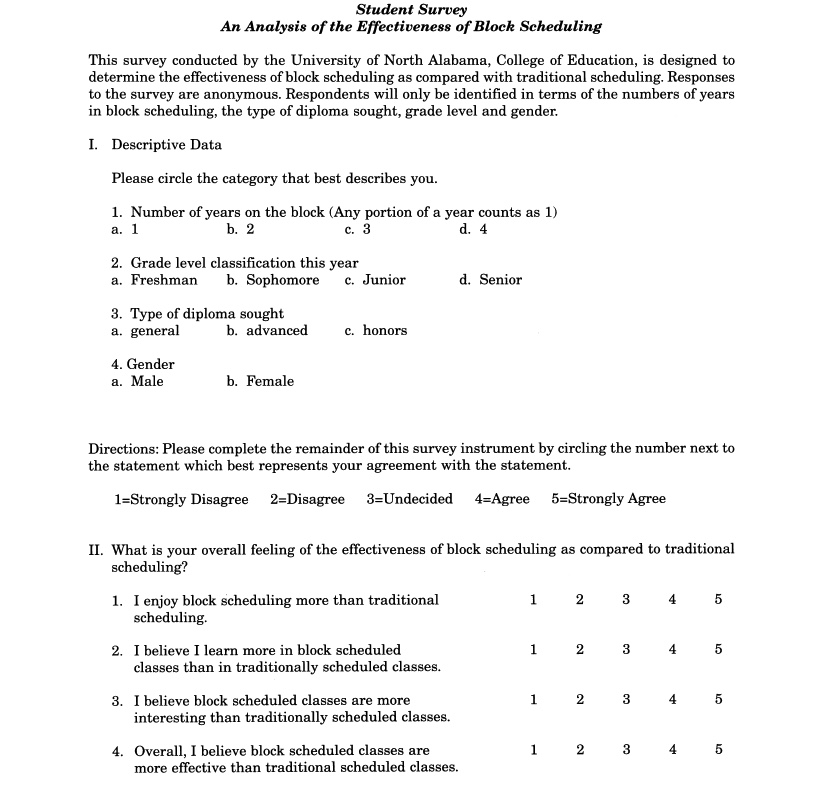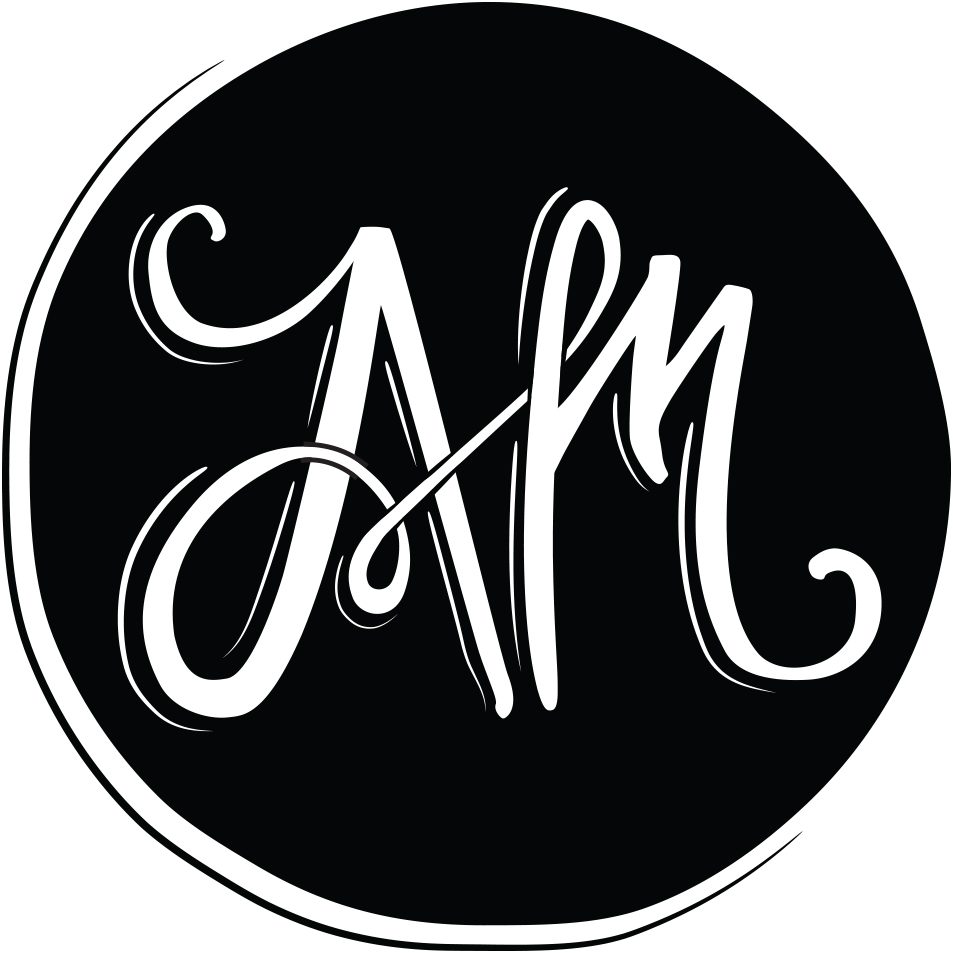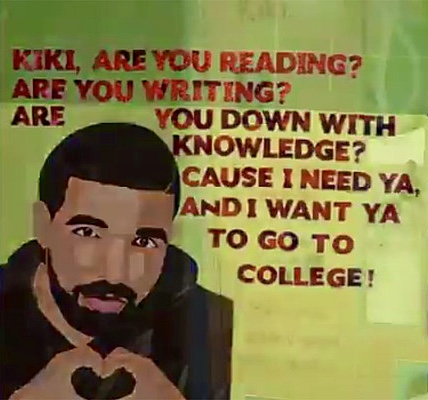For my ethnography I am looking at traditional school scheduling vs. block scheduling. The traditional school schedule consists of students attending 6 to 9 subject-specified classes each day which last up to 40 to 55-minutes each. But over the years many schools across the country have strayed away from this type of model and have been adapting their curriculum to the block schedule. The alternate day block schedule which is also known as the A/B block is just one type of block scheduling amongst a few others. With this type of schedule classes meet each day for ninety minutes. Days of the week alternate as A or B, therefore on “A” days students will meet in four of their classes and then on “B” days students will meet in another four classes.
But more specifically for this project, I am researching the different perceptions of students, parents, and teachers on the positive and negative aspects of block scheduling in school compared to a traditional schedule. Looking at these multiple perspectives I hope to further understand how more time in the classroom effects student’s achievement and overall experience at school, as well as how teachers adjust their classroom when teaching for extended periods of time. My driving research questions are:
- How does education shift for both students and teachers when more time is allotted in the classroom?
- Can a traditional or block schedule be seen as superior to the other in terms of student’s academic achievement and overall school experience? If so, why?
For my methods of research, I plan on using both interviews and surveys. For the surveys many of the case studies I found as secondary research included the questionnaires they used so I plan on utilizing those. The high school I attended happened to use the A/B block schedule and my cousin is a current student there so I am going to ask her and a group of her friends to complete the forms. To compare the findings, I am then going to ask some of her other friends that attend a high school in the area with a traditional school schedule to fill out a survey which will be tailored to them. I plan to have a protagonist to portray both types of schedules, so most likely my cousin and then another friend that takes part in the traditional school schedule. For the interviews I mainly plan to use for teachers and parents. I am going to reach out to former teachers to get their take on teaching for extended periods of time, how they alter their teaching style/classroom, how they think students do with it, etc. In the research there was a large gap on parent perceptions so I want to get an understanding from them on how if they see block scheduling or traditional scheduling as more beneficial, how it plays in to their child’s extracurricular activities, observations on time spent on homework etc.
Example of survey taken from secondary research:

Works Cited
Joe Wilson, and Laura C. Stokes. “Students’ Perceptions of the Effectiveness of Block Versus Traditional Scheduling.” American Secondary Education, no. 3, 2000, p. 3.








